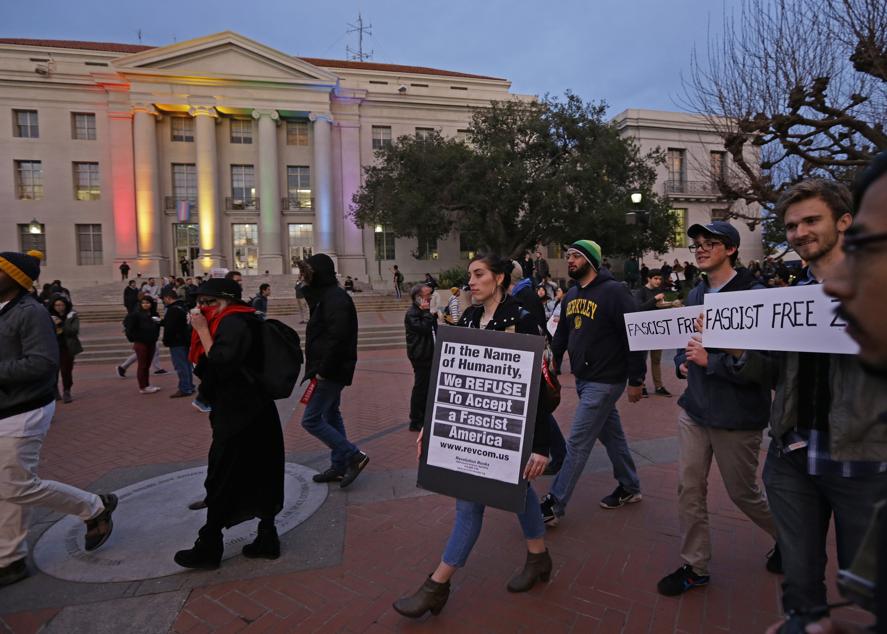
When Rachel Taravella arrived at work in early February and fired up her computer to check Berklee College of Music’s online activity, she was greeted by a torrent of insults directed at the school.
“Libtard,’’ said one tweet, using a popular put-down that translates roughly as “stupid liberals.’’ “Snowflake commies,’’ said another. Yet another labeled the school as “America hating.’’
There were so many tweets with the school’s Twitter handle, @BerkleeCollege, that Taravella, Berklee’s digital marketing manager, lost count.
“Each day when I go in and check the Twitter notifications, we don’t typically see that much engagement,’’ said Taravella, who only recently started working at Berklee. “But there was a huge influx.’’
Turns out that the haters had the wrong target. They were thinking of Berkeley, the famously liberal outpost of the University of California, which became the center of debate and widespread media attention this month when protests erupted on campus in response to the planned appearance of controversial alt-right speaker Milo Yiannopoulos.
“If you’re not in California or Boston, a lot of people just don’t know the difference’’ between the schools, said Magen Tracy, Berklee’s associate director of digital marketing and social media.
According to UC Berkeley, Yiannopoulos, a Breitbart News editor, had been invited by the Berkeley College Republicans to speak at the school’s Martin Luther King Jr. Student Union on Wednesday, Feb. 1.
School officials said at the time that “amid an apparently organized violent attack and destruction of property,’’ which led to a shelter-in-place order, Berkeley campus police were forced to evacuate Yiannopoulos from the building and cancel the event.
“The violence was instigated by a group of about 150 masked agitators who came onto campus and interrupted an otherwise nonviolent protest,’’ the school said in a statement.
Generator-powered spotlights were set ablaze by Molotov cocktails, windows were smashed, and fireworks and rocks were thrown at police during the skirmish with the outsiders, the school added.
As pictures of the disruption on campus were shared widely online and featured on the news that night and into the next morning, the split-second reactions on Twitter from people upset that the event was shut down soon followed — and many were aimed at Berklee.
“HAHA! Free Speech! Hate Free Zone! This is what happens when the students run the college!’’ an apparent supporter of President Trump wrote in a tweet to the school.
“New version of censorship @BerkleeCollege thugs riot burn to stop free speech! This is the lefties mentality-violence intolerance hate!,’’ another said.
In all, said Taravella, around 200 tweets either condemning the school or including it in tweets arrived in Berklee’s mentions.
Steve Annear can be reached at steve.annear@globe.com. Follow him on Twitter @steveannear.



